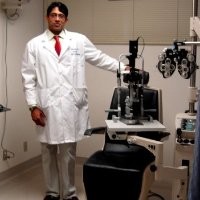A groundbreaking study from the University of Sydney has discovered that a specific component found in the cannabis plant, known as cannabinol (CBN), effectively enhances sleep. This pioneering research utilized objective methodologies to establish its findings and is the first of its kind to demonstrate increased sleep in rats due to CBN. The study was featured in the reputable journal Neuropsychopharmacology.
Despite age-old cannabis tales claiming that older cannabis induces drowsiness due to CBN accumulation, no concrete evidence supported this until now. Professor Jonathon Arnold, the study’s lead author and Director of Preclinical Research at the Lambert Initiative for Cannabinoid Therapeutics and the Sydney Pharmacy School, confirmed that their research provides the initial undeniable proof of CBN’s sleep-enhancing attributes. This was demonstrated through the alteration of sleep architecture in rats.
CBN is derived from delta9-tetrahydrocannabinol (THC), the primary psychoactive component of cannabis. Over time, THC in cannabis slowly transforms into CBN, meaning older cannabis contains higher quantities of this compound. Consequently, it’s been hypothesized that consuming aged cannabis results in a more somnolent “high.”
In the U.S., pure CBN products are marketed as sleep aids, although scientific evidence backing this claim has been sparse until now.
The Lambert Initiative for Cannabinoid Therapeutics’ research squad scrutinized the sleep effects of purified CBN in rats. Utilizing state-of-the-art monitoring, the team could observe and analyze the sleep patterns of the rats, including their non-rapid eye movement (NREM) and rapid eye movement (REM) sleep phases. NREM sleep, a deep sleep stage, aids physical recovery and memory consolidation. In contrast, REM sleep is tied to dreaming and emotional processing.
Professor Arnold stated, “CBN was discovered to amplify both NREM and REM sleep, resulting in increased total sleep duration, similar to the effect of the recognized sleep medication zolpidem.”
Interestingly, CBN, unlike its parent molecule THC, did not intoxicate the rats. While THC intoxicates by activating CB1 cannabinoid receptors in the brain, CBN only weakly activates these receptors. The researchers unexpectedly discovered that a CBN metabolite significantly affected these cannabinoid CB1 receptors.
The study also revealed that the 11-OH CBN metabolite influenced sleep architecture, potentially contributing to CBN’s overall impact on sleep. According to Professor Arnold, “This finding offers the initial evidence of CBN’s sleep-enhancing properties using objective sleep measures.”
However, he cautioned that their results are currently limited to rats, and more research is needed to determine if these findings translate to humans.
In a related study, a placebo-controlled randomized human clinical trial of insomnia patients, led by Professor Iain McGregor from the Lambert Initiative, has shown encouraging results. The trial was conducted by PhD student Isobel Lavender and leading sleep researcher Dr. Camilla Hoyos from the Woolcock Institute of Medical Research.
According to Professor McGregor, “Our research recommends further basic and clinical exploration on CBN as a potential new treatment strategy for sleep-related disorders, including insomnia.”
The team has now embarked on a preclinical drug discovery program centered on CBN, probing whether its sleep-inducing effects can be enhanced by other cannabis compounds or traditional sleep aids like melatonin.


Comments are closed for this post.